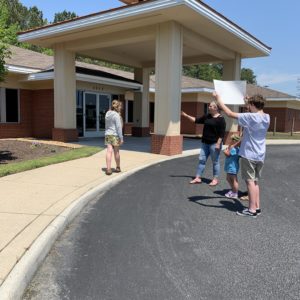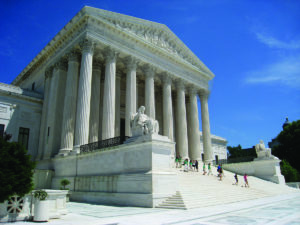
Rights of the Unborn


Bruni v. City of Pittsburgh
Pro-life advocates in Pittsburgh peaceably engage in one-on-one conversations with, and pass literature to, women about one of the most important decisions they will ever make—whether to kill their unborn baby. They also conduct prayer vigils. However, a Pittsburgh ordinance bars them from doing so within 15 feet of entries to abortion clinics, largely crippling their efforts.

A Woman’s Friend Pregnancy Resource Clinic v. Becerra, Livingwell Medical Clinic v. Becerra and National Institute of Family and Life Advocates v. Becerra
These cases involved crisis pregnancy centers that were subject to a California State requirement calling for them to make disclosures about their services. But, the state did not require similar disclosures by abortion providers.

June Medical Services v. Gee
The state of Louisiana is trying to keep abortions safe for women by implementing standards requiring doctors who provide outpatient surgery at surgical centers (such as abortion clinics) have admitting privileges at local hospitals. Pro-choice advocates are against this bill because it may reduce the number of abortions.

Indiana State Department of Health v. Planned Parenthood
The rights of the unborn are at stake, once again, as abortion is used as a tool for getting rid of babies based on sex, race, or disability.

Havard v. County of Wayne
After an inmate gave birth in jail, the baby suffered severe birth defects as the result of neglect and indifference by jail personnel. The inmate mother sued on behalf of her daughter. The defendant sought to avoid liability by arguing that the baby had not been a “person” during the delivery process.
Roach v. Stouffer
Pro-life Missouri challenged the denial of its request for a specialty plate. The district court and court of appeals ruled that that denial was unconstitutional.

Brown v. City of Pittsburgh
The city of Pittsburgh passed a ordinance that created both a 15-foot buffer zone and a 100-foot bubble zone around hospitals and abortion clinics. A pro-life protester challenged the ordinance under the Free Speech Clause of the First Amendment and Pennsylvania’s Religious Freedom Restoration Act. In a complicated ruling, the Court of Appeals for the Third Circuit ruled that the combination of the two zones was unconstitutional, while ruling against the protester on some other arguments.

Storman’s, Inc. v. Selecky
Following a period of national attention, the Washington Board of Pharmacy issued a regulation that effectively excluded a right of conscience for pharmacists who could not fill Plan B prescriptions because of their religious convictions. One of the arguments that Appellees presented in their Motion for Preliminary Injunction was that the Board was denying pharmacists the same fundamental right that other health care professionals enjoyed in contravention of the two statutes, and that denial was a violation of the Equal Protection Clause.
ACLU v. Tata
The state of North Carolina issued a “Choose Life” license plate, but would not issue a pro-abortion “Respect Choice” license plate. The ACLU sued North Carolina, alleging this different treatment was a violation of the First Amendment.